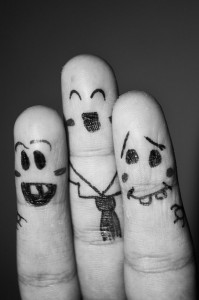 Poets, artists and musicians have known it for hundreds of years, but now medical research confirms it: Loneliness and isolation are hazardous to your health. Dr. Harlan Krumholz, director of the Center of Outcomes Research and Evaluation at Yale-New Haven Hospital, notes, “We shouldn’t just be concerning ourselves with pills and procedures. We have to pay attention to things like love and friendship and the context of people’s lives. It may be that these efforts to help people connect better with others … can have very powerful effects on their recovery and the quality of their lives.” Our connection to community may be the most important health insurance we have.
Poets, artists and musicians have known it for hundreds of years, but now medical research confirms it: Loneliness and isolation are hazardous to your health. Dr. Harlan Krumholz, director of the Center of Outcomes Research and Evaluation at Yale-New Haven Hospital, notes, “We shouldn’t just be concerning ourselves with pills and procedures. We have to pay attention to things like love and friendship and the context of people’s lives. It may be that these efforts to help people connect better with others … can have very powerful effects on their recovery and the quality of their lives.” Our connection to community may be the most important health insurance we have.
Researchers at Brigham Young University have declared loneliness to be a major public health issue, on par with obesity, smoking and substance abuse. The statistics are unsettling. Social isolation alone can increase the risk of premature death by anywhere from 19% to 26%. Even people who happily live alone can feel the negative impact on their health. Solitude affects more than our moods — it can also weaken our immune systems and make us more susceptible to heart disease and depression. On a purely practical level, the mere presence of another person lessens the chance we are ever left helpless or unconscious, beyond the reach of rescue, behind a locked door.
Considering the amazing technological advances in both medicine and digital communication, you’d think that in the year 2015 people would be healthier and happier. Ironically, pretty much the opposite is true. As humans are becoming more connected through devices, they seem to increasingly be removed from their deeper emotions and sense of shared humanity. It’s just a little too easy to be mean when you can hide behind a screen. And texting and social media offer a quick, virtual presence, but abbreviated thoughts and digital glimpses are nothing like being face to face with another living, breathing being with warm skin, a face and eyes. The complexities of human need cannot be expressed through an emoji. An avatar cannot hold you when you feel sad. But then … neither can a virtual image break into your house, beat you senseless and rob you blind.
In 2015, we have all become just a little bit afraid of each other And if we listen to the news, we have every reason to be. Every day, seemingly normal people suddenly erupt in a theater, at a school, breaking through the gates of the military, into the homes of sleeping families, raping, killing, infecting and terrorizing. It has us spooked to the point that on September 16, a 14- year-old Muslim boy was arrested and handcuffed at school for bringing in a science project clock that was mistaken for a bomb. We are jumping at shadows, anticipating treachery at every turn. And every day, there is something else to be afraid of.
Justified fear is the worst kind. It enables people to give themselves permission to act like fools and then feel sanctimonious. And we can become so hell bent on protecting ourselves we don’t notice that the walls we’ve erected as shields have become our darkest tombs. Fear takes so much away from us — our objectivity, our sense of well being, our ability to trust, even our ability to feel. It’s safer to seem unaffected, to look stylish and cool.
But there is a value to basic human connections — friends who care, partners who commit, parents who are annoying as hell but who have been there since the day you were born — the shared memories and the sense of roots and belonging. They mean something, these connections.
But what if you are alone? What if you’ve just moved, just been divorced, got mad or just got lost? It’s really so easy to become involved again. Volunteering is a great way to become part of a community. There are people out there who want you and genuinely need you. Studies have found this has powerful benefits. Individuals who volunteer in the community see a marked improvement in their own general health, with increased longevity and a more optimistic outlook about the future. When you help others, you pretty much always help yourself.
In summation, I offer this quote from Herman Melville, of all people: “We cannot live only for ourselves. A thousand fibers connect us with our fellow men; and among those fibers, as sympathetic threads, our actions run as causes, and they come back to us as effects.”
We really do need each other. Whether we like it or not.
yeah thats just what I said too: https://drbrilliantcliche.wordpress.com/2015/09/20/there-is-a-lack-of-joy-in-my-life/